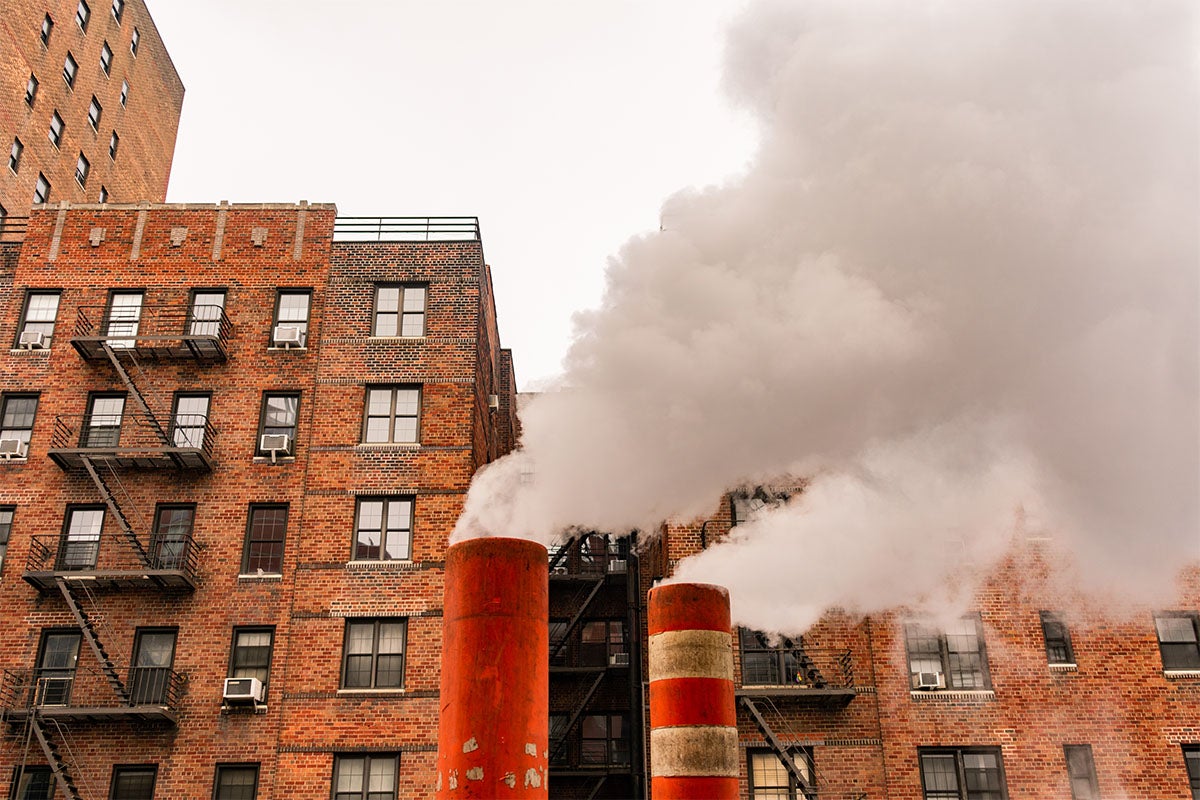Rising global temperatures are threatening our health—but there are reasons to be hopeful
Experts discussed solutions for dealing with the health impacts of climate change-driven extreme heat at a panel during the Harvard Climate Symposium.

Wildfires pose serious threat to inpatient health care facilities in California
Wildfires threaten a significant percentage of hospitals and other inpatient health care facilities in California—and in many counties, all the health care facilities may be at risk, according to a new study co-authored by researchers at Harvard Chan…

Finding practical solutions to climate change’s health impacts
The wide-ranging health impacts of climate change, including food insecurity, migration, war, and the spread of infectious diseases—and practical solutions to address these problems—were the focus of a half-day symposium hosted by Harvard Chan School.

New center aims to spur research on climate change and health
Harvard Chan School and Boston University School of Public Health been awarded a $6.7 million, three-year grant from the NIH to create a Research Coordinating Center on climate change and health.

Harvard Chan School’s Christopher Golden receives grant to strengthen public health systems through artificial intelligence
Harvard Chan School’s Christopher Golden is among the recipients of the National Science Foundation’s recent $140 million investment in artificial intelligence (AI). He will co-lead a project aimed at strengthening the public health system in Madagascar through AI…

Harvard Humanitarian Initiative selects The New Humanitarian for Weintz Award
The New Humanitarian, a nonprofit news organization that reports from the heart of conflicts and disasters, has been selected to receive the Harvard Humanitarian Initiative’s 2023 Elisabeth B. Weintz Humanitarian Award.

Highlighting the good news about climate
There’s a lot of progress being made to combat climate change—and it’s important to highlight it to motivate people to push for more, according to Harvard Chan School’s Marcy Franck.

Rising dengue cases disproportionately affect children in U.S. territories
In U.S. territories in the Caribbean, cases of dengue are on the rise in children because of inequities in the effects of climate change and the accessibility of vaccines, according to experts.
Allergies are getting worse with climate change
Experts say that climate change may be leading to worse pollen allergy seasons, as trees and plants such as ragweed are producing pollen sooner because warmer weather is starting earlier in the year.
Black Americans, low-income Americans may benefit most from stronger policies on air pollution
Stronger regulations lowering levels of fine particulate air pollutants (PM2.5) would benefit the health of all Americans, but Black Americans and low-income Americans would likely reap the most benefits, including a lower risk of premature death, according to…
